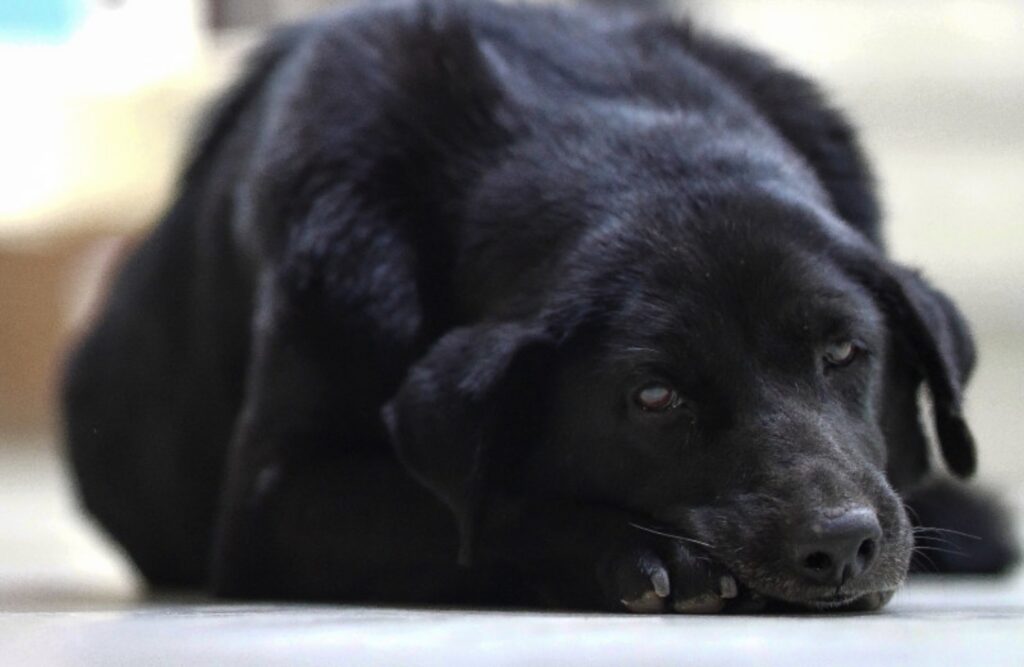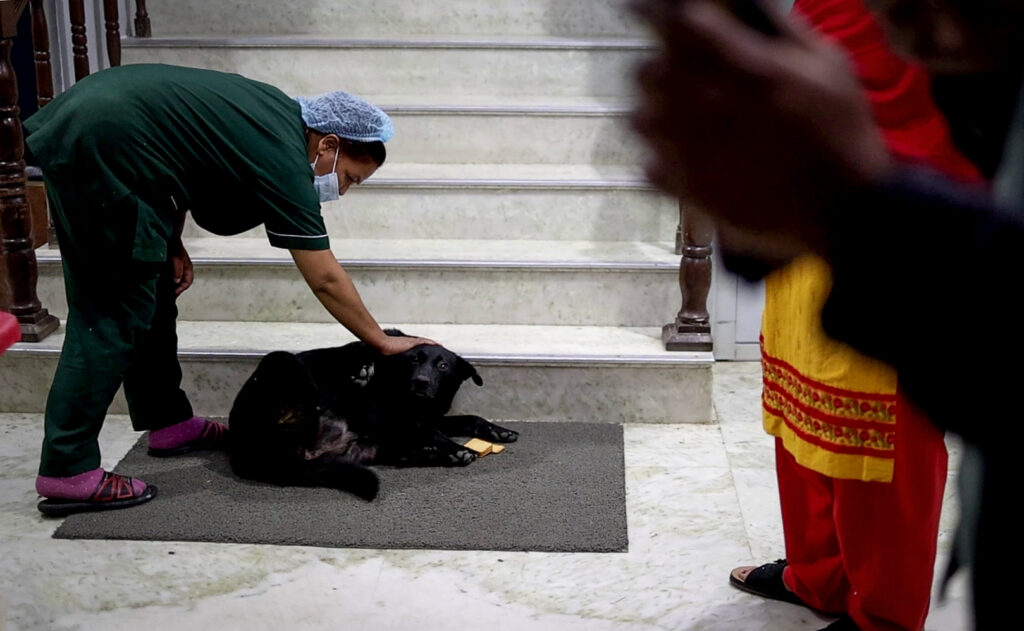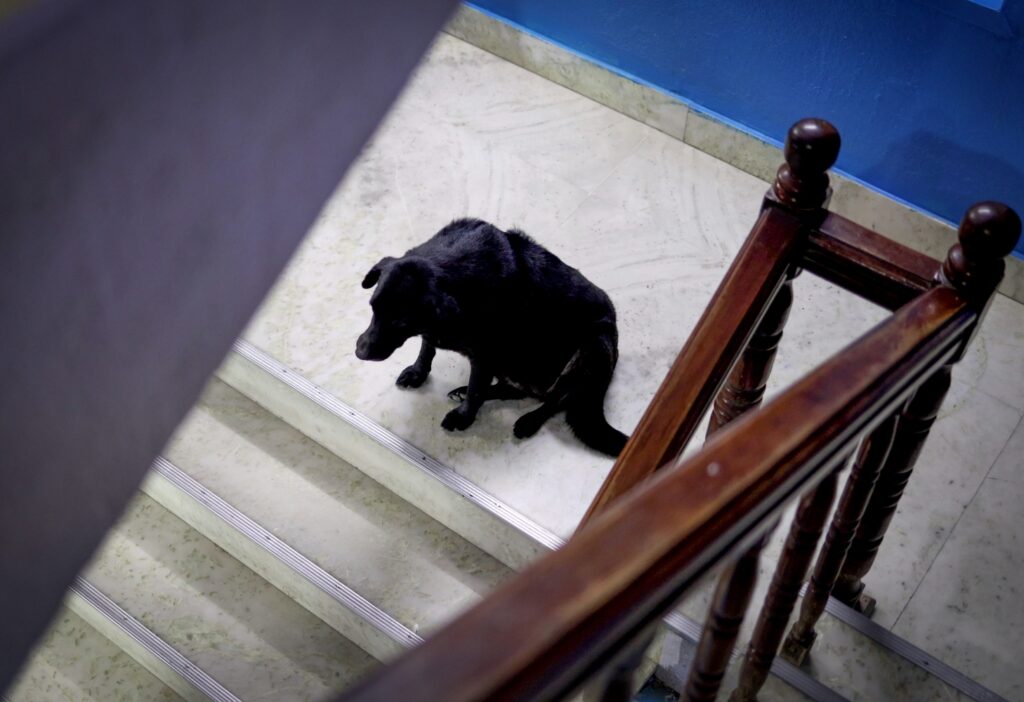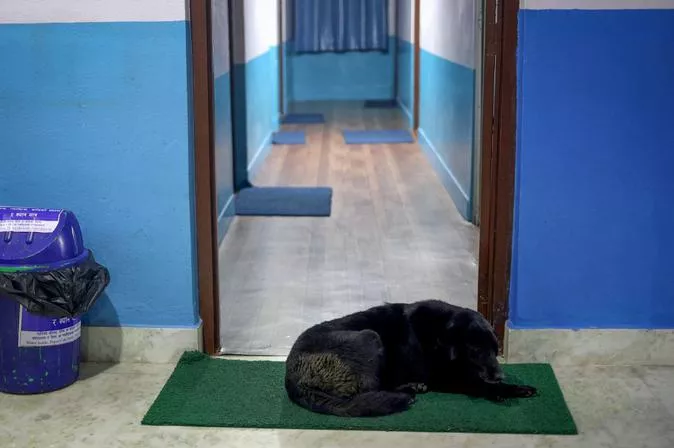On Kukur Tihar, a tribute to Kali who has waited eight years outside the hospital cabin where her owner died
by Anita Bhetwal
The April 2015 earthquake had just hit Kathmandu, and a patient was admitted to Alka Hospital. His small black pet puppy had followed the man to his cabin C18.
The patient died during treatment, and his body was taken away without the pooch knowing. But for the past eight years, the dog has waited for her owner outside the room.
She is grown up now, her silky black coat is dirty and scraggly. But every night since 2015 she has kept vigil outside room C18 at Alka Hospital. In the daytime, she takes the stairs down to the hospital courtyard.
“She just sits there waiting for him to show up,” says Alka Hospital
administrator Bhagwan KC. “She has never gone anywhere else but this hospital, and at night she is always on the mat outside C18.”


The hospital tried to take the dog back to the patient’s family. She
refused to go, and when his family came she got very agitated and used to hide and bark. The administration then tried to chase the dog away, but she always came back.
“After a while, we just gave up, and have adopted her,” says Goma Thapa, who is a janitor at Alka. The dog has been given the name Kali because of her colour, and she has become a permanent fixture at the hospital.
Last week when we visited Alka just before midnight, there was Kali sleeping outside C18. Even after eight years, she remembers her best friend and is still waiting for him. Hospital staff feed her, and she does not bother anyone.
“She stays here all the time, she eats here, sleeps here, she never leaves, she is like a member of the staff,” Thapa says. “She is an amazing dog. The owner must have loved her a lot.”
When she sees someone unfamiliar she still wags her tail, sniffs the person curiously, but then dejectedly goes back to sleep when she finds out it is not her owner.


Kali reminds veterinary specialist Bishal Chaudhary of Hachiko, the Japanese Akita which waited outside Shibuya train station in Tokyo for his owner for nine years in the 1920s.
“The human mind is episodic, but a dog’s brains is associative, it links its sense of smell with memory of space and time,” explains Chaudhary, who thinks the owner must have taken the puppy to hospital with him several times for checkups before he had died, and she associated the place with him.
Hospital administrator KC says Kali is now a part of the Alka family, and there is no question of sending the dog anywhere. Kali is now getting older, she is slower, but she has never given up waiting for her owner. Says KC: “She will live the rest of her life here, right outside cabin C18.”
INPS Japan/Nepali Times


